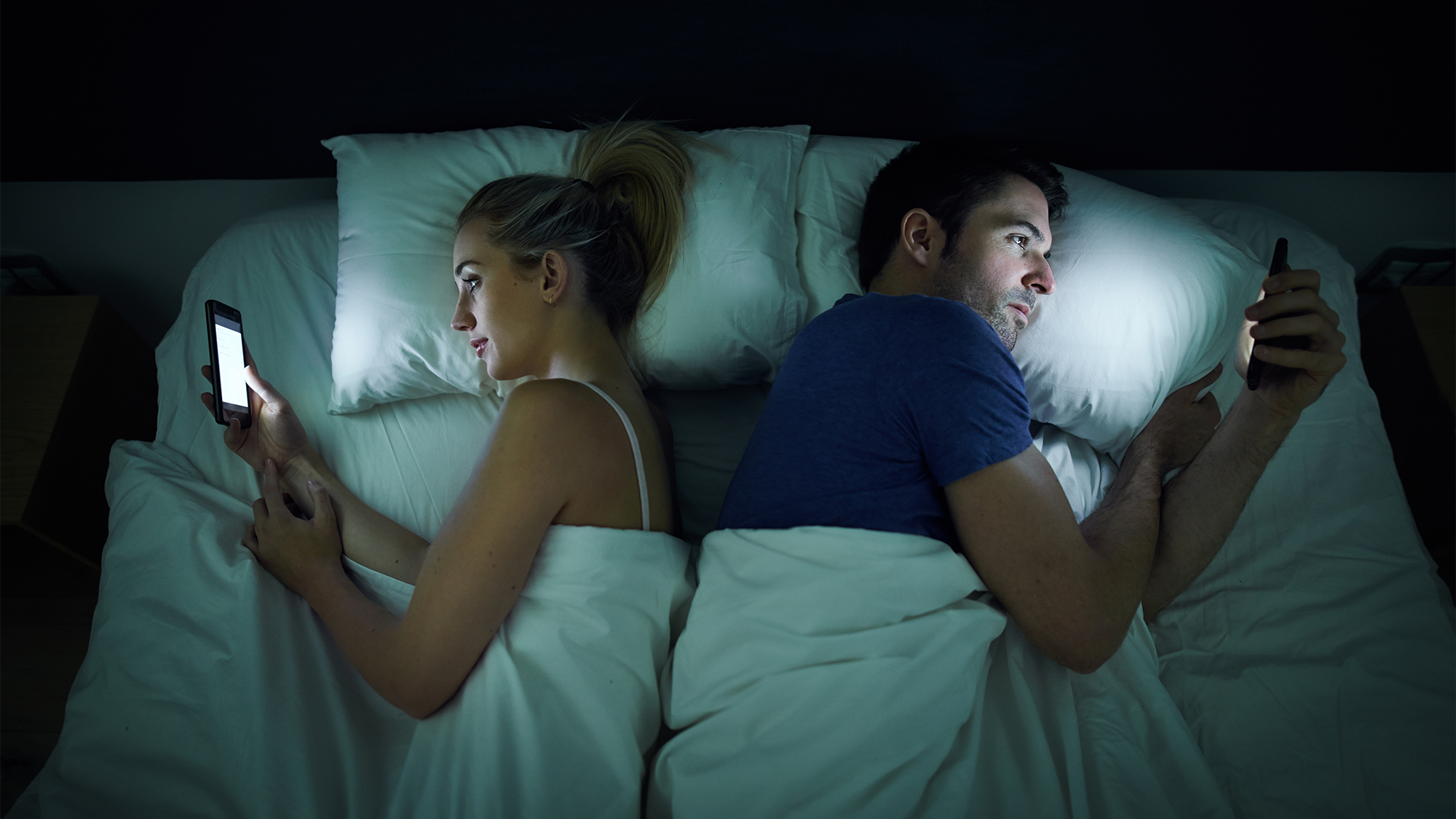In our hands, in our pockets, on transport, on the bedside table, in the bathroom: our smartphone now never leaves us. This extremely practical and useful best friend does not only wish us well. It captures our attention for several hours a day. A real extension of our personality, our smartphone is becoming increasingly intrusive. After alcohol and tobacco, will we become dependent on our screens?

Where are you at with your smartphone?
If you look at your phone’s settings, “screen time” section for Apple and “Battery & performance” for Android, you will see that the time spent on your smartphone is very likely longer than you imagined.
Endless scrolling on Facebook, Vinted or Instagram, one video after another on YouTube or Netflix, it becomes part of our lives, slowly but surely. We hear talk today of internet addiction, an inability to control the time allocated to internet-related activities.
In addition to the amount of time spent on our smartphones, another symptom of this addiction is a form of anxiety known as nomophobia, the fear of forgetting our smartphones, running out of battery or having no coverage.
Most often, internet addiction is accompanied by undesirable effects that you may be aware of: trouble sleeping, stress or even anxiety, difficulties concentrating and remembering what we’re reading.
A relationship with many effects
Without being clairvoyant, there is little doubt that the relationship you have with your smartphone is “complicated”. It does indeed have some very powerful charms. It continuously comes alive with notifications, whistles, vibrations and flashes, very often to remind you it’s there.
With social networks, it also knows how to please you and give you what you love. Continuous news, which feeds your need for discovery and entertainment, likes and comments which fulfil your need for belonging and recognition.
It is even capable of making you tremble with FoMO (acronym of Fear of Missing Out), that fear of missing an important piece of news or any other event that would put you “out of the loop”. A number of doctors have drawn an analogy with cocaine: by triggering shots of dopamine, social networks activate the same areas of the brain as the hard drug.
The right distance rather than love/hate
Rejecting everything as a whole and becoming a technophobe is a pointless exercise. During lockdown and its aftermath, Facebook, Instagram, Zoom, WhatsApp and others also helped us a lot. As is often the case, what’s important is finding a happy medium.
Ofir Turel, one of the pioneers of research into addiction mechanisms related to social networks, explains: we are tempted to ask more and more from it, but we are also capable of restraining ourselves. Unlike cocaine, social networks do not affect our inhibitory system. In other words, we can take back control and organise how we use social networks and our smartphone in a way that suits us.
Organise a digital detox: stack the odds in your favour!
Social networks are undoubtedly an effective way of capturing your attention. It is what they were made for. It’s no use blaming them or feeling weak or guilty, you’ll just be wasting your time. Instead, starting today, you can put in place a number of concrete and easy measures to regain control over your smartphone. Here are five tips to ensure your digital detox is a success:
- Give yourself real motivation
This digital detox is not a practice where you can say, okay I will stop all social media or the use of other apps on my smartphone, like other “good resolutions” you will never keep it up.
Be pragmatic: view your current screen time and decide what you want to do with it. When you are freed from your smartphone, you could get back the equivalent of a day a week to spend quality time with your partner or family, read more, learn a language, develop an additional business or even finish one of your projects that you’d abandoned because you didn’t have time.
- Distance yourself, literally
Dust off your alarm clock and ban your smartphone from your bedroom. You can also invest in a watch so that you don’t have to get your phone out every time you want to know what time it is.
- Declutter or reduce notifications at source
Sift through your inbox, web pages and other accounts you follow and only stay subscribed to what you’re really interested in.
- Set limits
In your smartphone’s settings, you can schedule a shutdown period, mute all non-essential notifications or reduce colour intensity.
There are also apps that help monitor your screen time, like Moment. Generally, they suggest you define a maximum daily time per application. Depending on the settings chosen, they warn you when the time has elapsed or even lock the phone for a few minutes.
- Take breaks
Force yourself not to look at your phone or e-mails for an hour or two. If it’s a real emergency, people will always be able to contact you.



